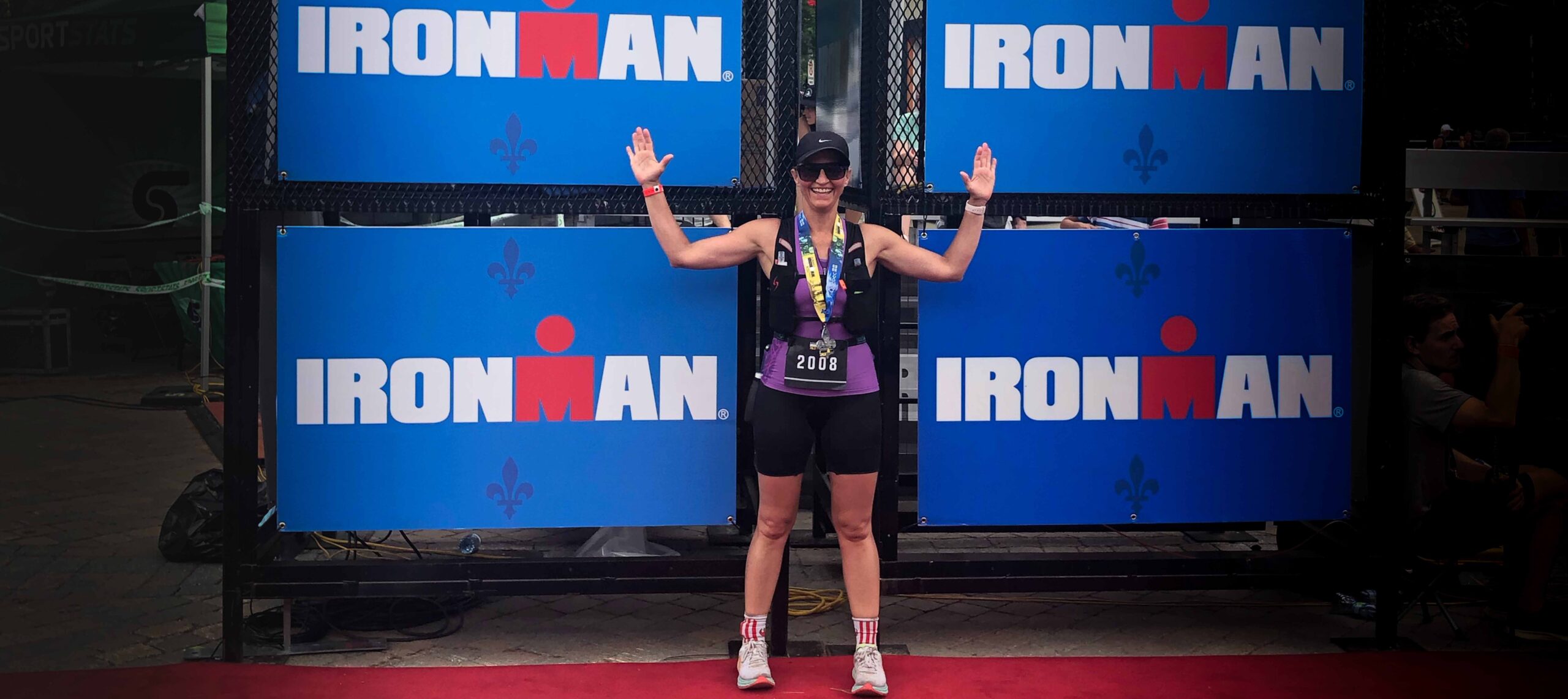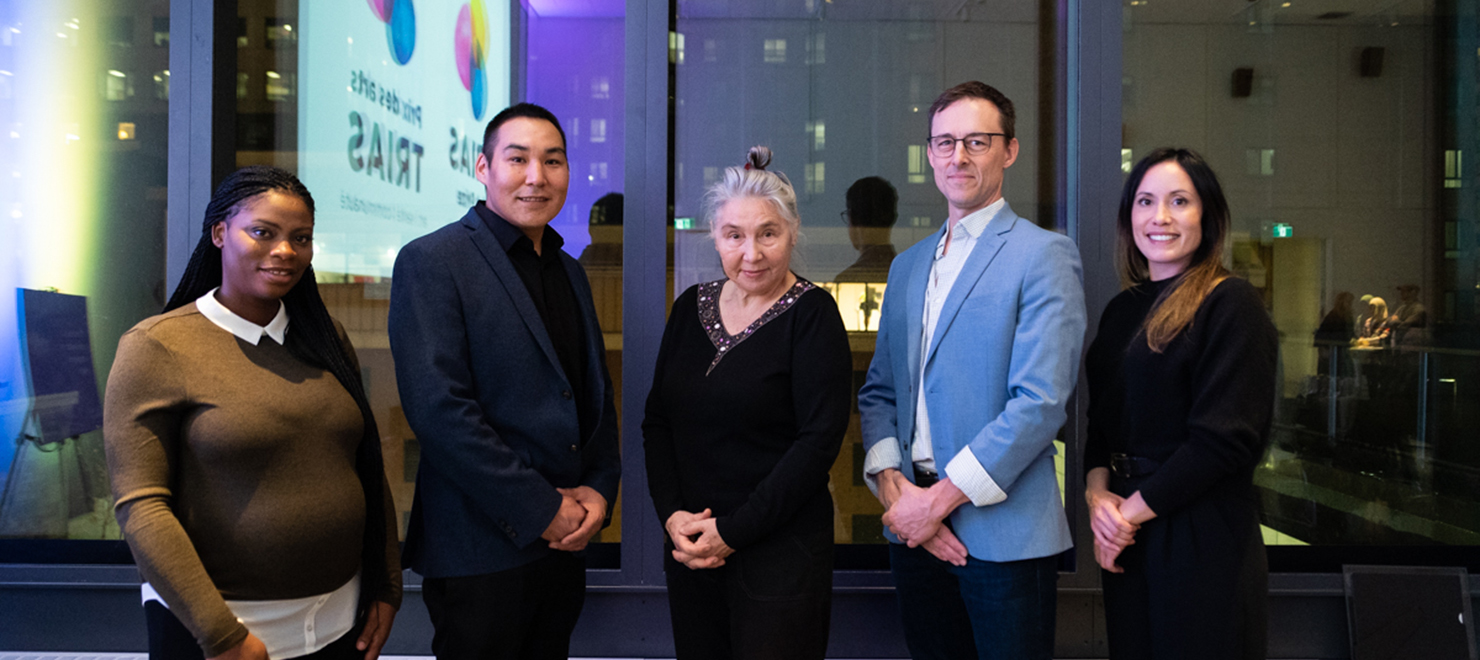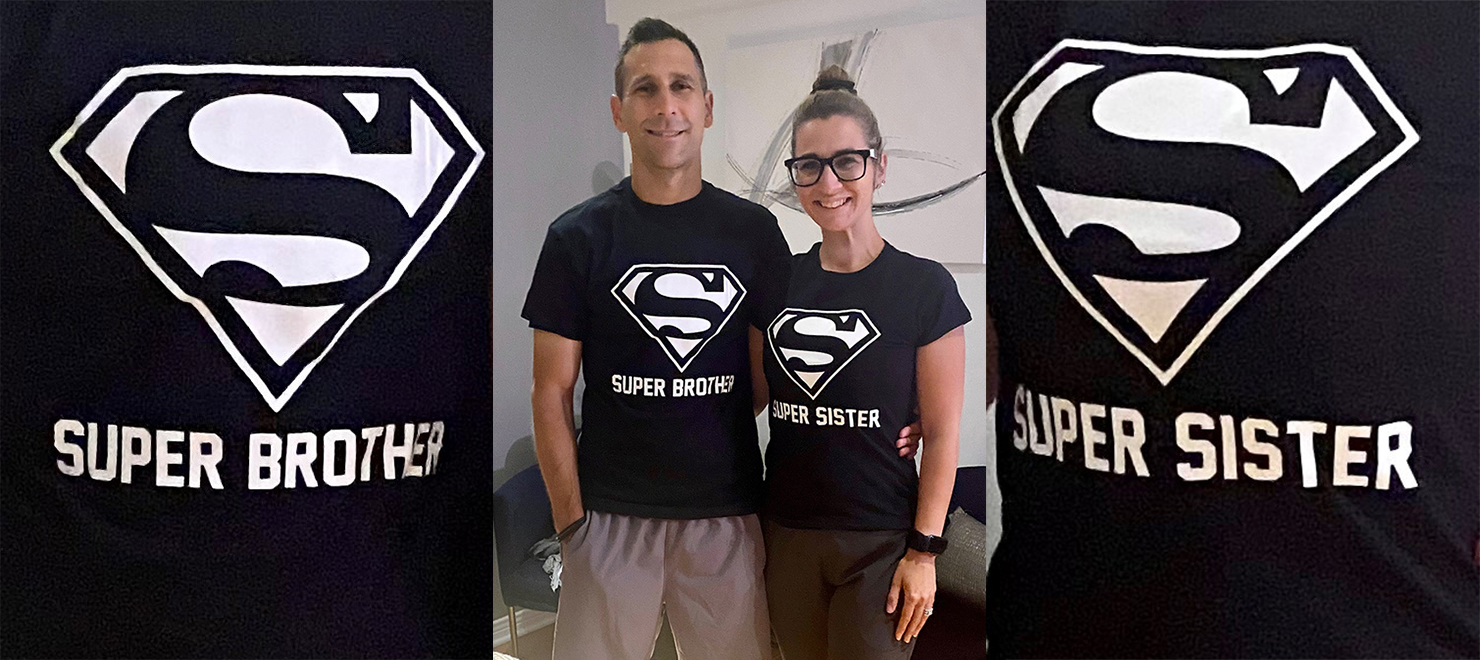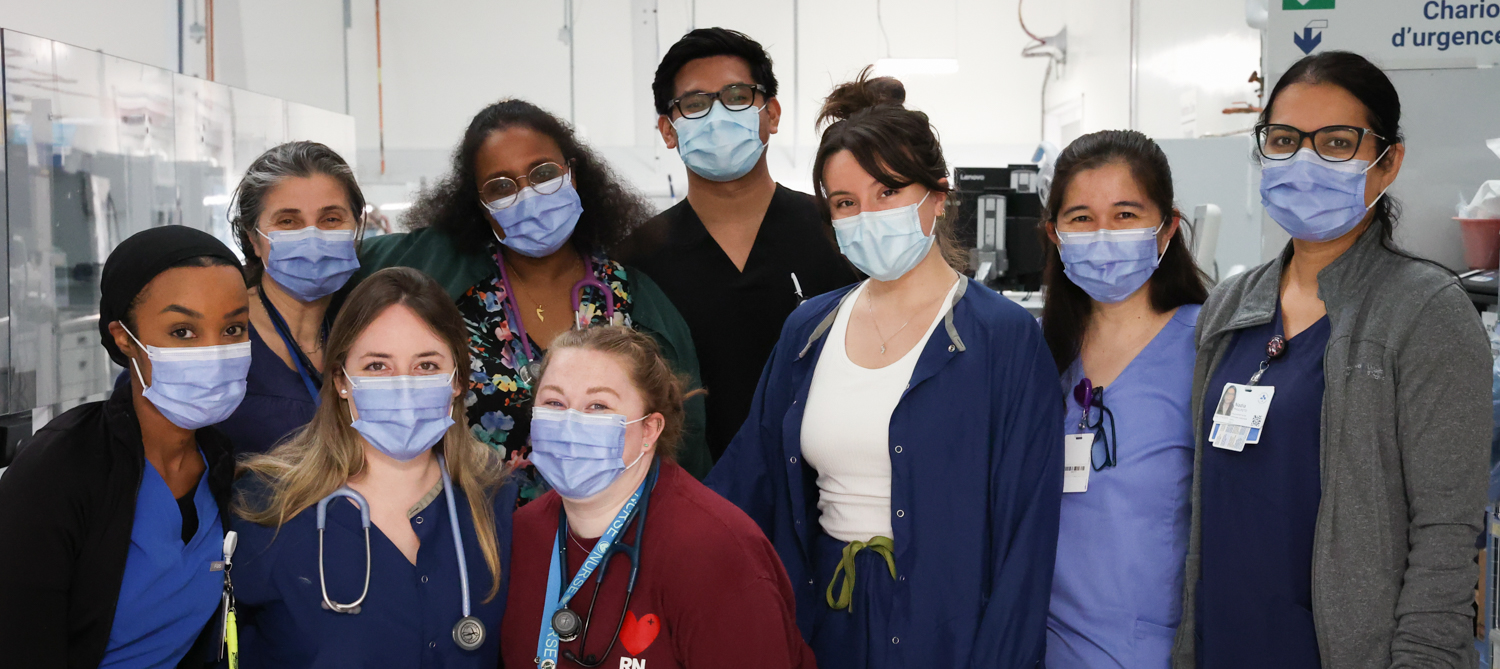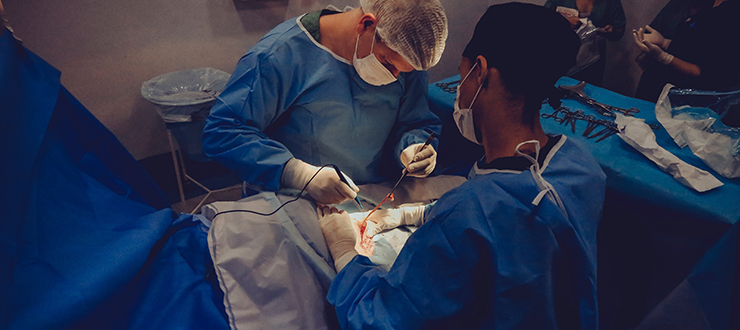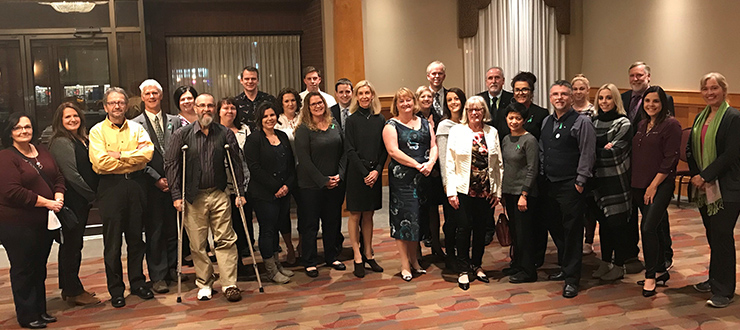
Twenty-eight living kidney donors were honoured at the ceremony for their selfless decision to save a life.
Marie-Claire Jean-Louis held back tears as she stood on stage in front of hundreds of people who had been affected by kidney donation.
“If a person can donate their kidney, the least I could do is get over my fear of public speaking so I could thank them personally,” she said.
Marie-Claire was one of the speakers at the Living Donor Recognition Ceremony, organized by The Ottawa Hospital on Oct. 30. The ceremony honoured 28 living kidney donors who made the selfless decision to save a life by donating one of their kidneys.
Marie-Claire was diagnosed with polycystic kidney disease just a few years ago. With her kidneys working at just nine percent efficiency, she was told she needed a kidney transplant. Her daughter offered to donate her own kidney, but she and her mother were not a match.
Thankfully Marie-Claire had another option. People needing a kidney can connect to potential donors outside of their own networks through the Living Donor Paired Donation Registry, operated by Canadian Blood Services. For Marie-Claire’s daughter, the Paired Donation Registry also gave her the opportunity to donate her kidney to someone else in need.
“I have a special place in my heart for kidney donors,” Marie-Claire said in her speech. “You are all very special people. You did not have to give a kidney – you chose to give a kidney so someone would have a chance to live a healthy life. If it wasn’t for people like you, I might not be here tonight to thank you in person.”
Organ recipients like Marie-Claire weren’t the only speakers at the ceremony. Living donors like Margaret Berry also shared their experiences. Like Marie-Claire, Margaret benefitted from the Paired Donation Registry. The two women’s stories may have been different, but their feelings were very similar.
“Thank you for choosing to change someone’s life,” Margaret told the crowd. “Thank you for donating a kidney in order to give a family member, a friend or a stranger their life back. I commend you all and hope that, like me, you are enjoying the outcome and telling everyone about it.”
Margaret’s husband, John, was diagnosed with kidney disease in the early 1990s. After 20 years of living with a donated kidney, John’s health began to fade. It became clear that he was going to need another transplant. When Margaret found out that she was not a direct match for John, they decided to join the Paired Donation Registry. John received a kidney through the Registry and Margaret donated her kidney to a stranger.
“Once I recovered from surgery, my life returned to normal,” continued Margaret. “I can babysit my grandchildren, volunteer at the hospital, go to the gym regularly, all like I used to do. Having my healthy husband back was the best outcome of all!”
Jessica McDougall, a nurse within the Living Donor Program, was at the ceremony to present medals to the living donors. She sees first-hand the difference that living donors make in the lives of others, some of whom they may never meet.
“It’s not often that you have a room full of people who chose to donate an organ to, in some cases, a stranger,” said Jessica. “But this ceremony was a testament to the selflessness that exists in our community, and throughout the country. Without this compassion for others, life-saving and life-enhancing transplants would not be possible.”
To learn more about Paired Donation Registry or organ donation generally, visit the Trillium Gift of Life Network.

Support patient care and research at
The Ottawa Hospital
You might also like…
Angèle crushes triathlons and myths about living kidney donors
There’s no shortage of myths about living kidney donation. You may have heard that donors should no longer participate in sports or try to get pregnant. Well, meet Angèle. She’s a triathlete, a mother and a living kidney donor who gave her father a new life 13 years ago.
Healing through art: Congratulations to the winners of the TRIAS Art Prize
Did you know that art has the power to heal? This year, The Ottawa Hospital and the Ottawa Art Gallery launched the TRIAS Art Prize to recognize the role of artists in healing and wellness. We recently announced the winners, and you’ll see their artwork around the hospital in the new year. Get a sneak preview today.
Becoming a living kidney donor has never been easier: Trina and Antonio’s story
Kidney donors like Trina usually face many months of tests, but a new program at The Ottawa Hospital allowed her to complete nearly all of them in just one day. Trina shares her experience as a living donor and how this new program made it easier to give her brother the gift of life.
“When I felt alone, they were there”: Celebrating National Nursing Week
Three years into the pandemic, patients and families share their powerfully personal stories of how nurses answered the call.
2021 Excellence Awards: The Ottawa Hospital’s incredible people and teams celebrated at special virtual event
The Ottawa Hospital’s Excellence Awards features outstanding leaders and volunteers, committed academics and educators, hidden heroes, and team players. This year, we celebrated our shining stars virtually with the help of a few special guests!
Organ donation: Your questions answered
Have you ever wondered how to become an organ donor? Or how to have that conversation with your family or friends? We spoke with experts from The Ottawa Hospital and Trillium Gift of Life Network (TGLN) about the most common organ donation questions they receive. Here are their answers.


 To reset, hold the Ctrl key, then press 0.
To reset, hold the Ctrl key, then press 0.
